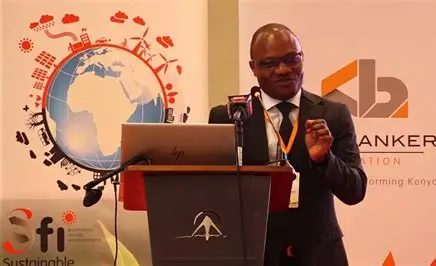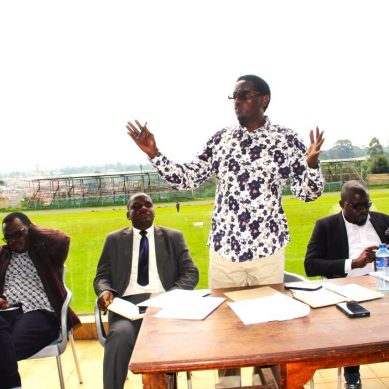
While Africa has the potential to feed the entire world, the continent still imports more than 50 per cent of its food needs, according to UN Food and Agricultural Organisation (FAO) estimates. The irony is now a source of concern for African leaders who have lined up a meeting in Kampala, Uganda, to discuss the misnomer of the continent being perennially on the dole yet it has the most fertile soils in the world.
Consequently, African heads of state and government are being rallied to actively participate in shaping the future of the continent’s agrifood systems. The food security agenda is contained in the Comprehensive African Agricultural Development programme (CAADP) strategy and action set for implementation from 2026-2035.
As the Third Comprehensive African Agricultural Development Programme Extra-Ordinary Meeting slated for Kampala, Uganda, it is expected that African leaders will strike a deal on how to tackle food insecurity, which has over the years taken an endemic character.
The United Nations estimates Africa’s agricultural land to be just over 2.38 billion hectares, but less than six per cent of the land is under food production. “Arable land and land under permanent crops occupy only about 6 per cent of Africa’s total land area,” the UN says in its 2022 report.
A statement issued at the Pre-African Union Extra-Ordinary Summit on Post-Malabo CAADP Agenda media briefing by Maj-Gen David Kasura-Kyomukama, cites statistics that show Africa spends $100 billion – mainly on cereals – while $16 billion goes to fat and oil imports. Maj-Gen Kasura-Kyomukama is the permanent secretary for Pre-CAADP Summit and works in liaison with ambassadors representing African Union member-states in Uganda.
Brazil, India and the European Union are the main suppliers as the three regions account for roughly 50 per cent of Africa’s total imports. It is estimated that between 1980-2007, Africa’s total net food imports grew by 3.4 per cent per annum, mainly fuelled by population growth.
It is on record that Africa has 65 per cent of the world’s remaining uncultivated arable land, available fresh water with an approximate 300 days of sunshine annually with 60 per cent of its working population involved in agriculture as its soil remains rich and fertile.
“The irony is obvious and it is within us as Africans to resolve it, it is our hope that as Uganda prepares to host, deliberate and adopt the thirdstrategy and action plan of CAADP early next year, the African Union member-states will be able to discuss and come up with solutions to the continent’s agrifood systems impasse that will catapult it out of the food quagmire,” he pointed out.
The permanent secretary further observed that they are aware that the continent was making significant strides in overhauling its agricultural sector, there was more to be done through the next phase of CAADP to finally attain its much desired goals as far as agrifood system is concerned.
“We will pay special attention to where we had loopholes in terms of priorities, systems and approaches and continue to plug them, as it is worth noting that the CAADP implementation is at the national with partnership at regional level being a catalyst to it,” the permanent secretary pointed out.
The upcoming Uganda summit comes at a time when the Fourth CAADP biennial review in 2023 highlighted strong performance regions including 100 permanent for CAADP process completion as 86.4 per cent as index of capacity to spawn and use agriculture statistical data and information.
The biennial review also noted 100 per cent for inclusive institutionalised mechanisms for mutual accountability and peer review as 47.3 per cent of farm, pastoral and fisher households being resistant to climate and weather shocks as five out of five agricultural commodity value chains under which a public private partnerships established with a linkage to small-scale agriculture.
“Our rating has given as a clean bill of health as progressing well considering that CAADP is part of the Agenda 2063, I’m happy that we know where we are heading and what should be done to improve and with the CAADP 2026-2035, together with the Kampala CAADP declaration, there’s room to do better as already better infrastructure, technology, more trained human resource, peace and stability are in place to realize this.
A strong agricultural sector is a pillar for a strong agrifood systems that encompasses agro-industrialisation and food self-reliance hence need for each key player irrespective of the sector to deliver their respective role diligently as a population that cannot feed itself cannot guarantee its future existence,” he added.
Uganda’s Minister for Agriculture, Animal Industry and Fisheries (MAAIF) Frank K. Tumwebaze who doubles up as chairperson of African Union’s specialised technical committee on agriculture, rural development, water and environment hailed the African Union team led by Commissioner Josefa Sacko for their commitment in ensuring the CAADP strategy and action plan (2026-2035) draft was ready for deliberation and adoption ahead of the January 9-11, 2025, Kampala summit.
In November 2023, Uganda through its minister for agriculture, animal industry and fisheries was elected to chair the African Union specialised technical committee on agriculture, rural development, water and environment (STC-ARDWE). It was mandated to oversee the development of CAADP strategy and action plan for the period 2026-2035 and the Kampala CAADP declaration that will both be adopted at the upcoming summit this January. The summit will be attended by all African Union head of states and will attract 2,000 participants, among others agricultural practitioners, researchers, development partners and the media,” the minister says.
At the summit, the government of Uganda and the African Union will host two major side events on Women and youths in agrifood systems and Refugees/forced migration and agrifood systems in Africa under the theme: Building resilience of agrifood systems through commercialisation.
CAADP is implemented through a 10-year successive strategies and action plans, with the first one being adopted in Maputo (Mozambique) in 2003, followed by the Malabo(Equatorial Guinea) in 2014 and the forthcoming summit in Kampala Uganda (2026-2035).
- A Tell report / By Isaac Wakhungu Andanje








